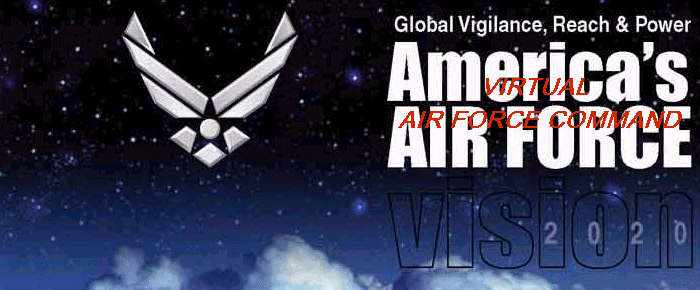
|
|
|
|
|
 |
FS98 USAF Lockheed C-141B Starlifter Name: c141pak.zip Size: 2,793,598 Date: 06-02-1999 FS98 USAF Lockheed C-141B Starlifter four engine jet transport. This C-141 is the stretched version as flown by the Air Mobility Command (AMC) of the U.S. Air Force and is painted in the old gray/white scheme. Includes aircraft, panel and sounds. The panel is based on actual photos and the aircraft includes an ADS (Aerial Delivery System) that will open the aft doors and extend the ramp on the ground or in flight. By Mike A. Mendez with Les Watson (aircraft) and Mike Hambley (sounds). |
|
| FS98 305th Lockheed C-141B/C Name: c141305b.zip Size: 38,240 Date: 09-03-1999 FS98 305th Lockheed C-141B/C Starlifter. This USAF C-141 is painted in the grey livery of the 305th Air Mobility Wing based at McGuire AFB. By Major Alan. |
||
| FS98 Lockheed C-141B Special Forces Name: c141-437.zip Size: 38,379 Date: 10-27-1999 FS98 Lockheed C-141B Special Forces 437th Airling Wing. From USAF Scenerio. By Major Alan. |
The C-141B Starlifter is the "workhorse" of the Air Mobility Command. The Starlifter fulfills the vast spectrum of airlift requirements through its ability to airlift combat forces over long distances, deliver those forces and their equipment either by air, land or airdrop, resupply forces and transport the sick and wounded from the hostile area to advanced medical facilities.
The C-141B is a "stretched" C-141A with in-flight refueling capability. The stretching of the Starlifter consisted of lengthening the planes 23 feet 4 inches (7.11 meters). The added length increased the C-141 cargo capacity by about one-third, for an extra 2,171 cubic feet (62.03 cubic meters). The lengthening of the aircraft had the same overall effect as increasing the number of aircraft by 30 percent. The C-141A, built between 1963 and 1967, was AMC's first jet aircraft designed to meet military standards as a troop and cargo carrier. The development of the B model was the most cost-effective method of increasing AMC's airlift capability.
A universal air refueling receptacle on the C-141B, with the ability to transfer 23,592 gallons(89,649.6 liters) in about 26 minutes, means longer non-stop flights and fewer fuel stops at overseas bases during worldwide airlift missions.
The C-141 force, nearing nine million flying hours, has a proven reliability and long-range capability. In addition to training, worldwide airlift and combat support, the C-141 has amassed a laudatory record in response to humanitarian crises.
The C-141, with its changeable cargo compartment, can transition from rollers on the floor for palletized cargo to a smooth floor for wheeled vehicles to aft facing seats or sidewall canvas seats for passengers, quickly and easily, to handle over 30 different missions.
Primary Function: Cargo and troop transport
Contractor: Lockheed-Georgia Co.
Power Plant: Four Pratt & Whitney TF33-P-7 turbofan engines
Thrust: 20,250 pounds, each engine
Wingspan: 160 feet (48.7 meters)
Length: 168 feet, 4 inches (51 meters)
Height: 39 feet, 3 inches (11.9 meters)
Cargo Compartment: Height, 9 feet 1 inch (2.77 meters); length, 93 feet 4
inches (28.45 meters); width, 10 feet 3 inches (3.12 meters)
Cargo Door: width, 10.25 feet (3.12 meters); height, 9.08 feet (2.76 meters)
Speed: 500 mph (Mach 0.74) at 25,000 feet
Ceiling: 41,000 feet (12,496 meters) at cruising speed
Range: Unlimited with in-flight refueling
Maximum Takeoff Weight: 323,100 lbs (146,863 kilograms)
Load: Either 200 troops, 155 paratroops, 103 litters and 14 seats, or 68,725 lbs
(31,239 kilograms) of cargo
Unit Cost: $42.3 million (FY98 constant dollars)
Crew: Five or six: two pilots, two flight engineers and one loadmaster and one
navigator (added for airdrops). Aeromedical teams of two flight nurses and three medical
technicians each are added for aeromedical evacuation missions.
Date Deployed: C-141A: October 1964; C-141B: December 1979.
Inventory: Active duty, 74; Air National Guard, 28; Air Force Reserve, 68
|
Send mail to VAFC Webmater
with questions or comments about this web site.
|